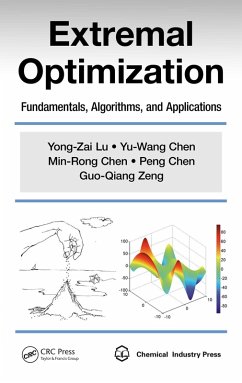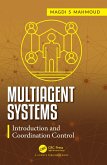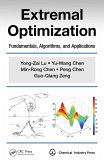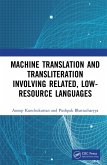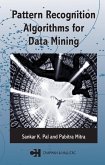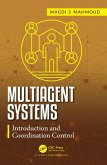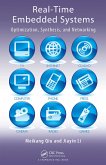Extremal Optimization (eBook, ePUB)
Fundamentals, Algorithms, and Applications


Alle Infos zum eBook verschenken

Extremal Optimization (eBook, ePUB)
Fundamentals, Algorithms, and Applications
- Format: ePub
- Merkliste
- Auf die Merkliste
- Bewerten Bewerten
- Teilen
- Produkt teilen
- Produkterinnerung
- Produkterinnerung

Hier können Sie sich einloggen

Bitte loggen Sie sich zunächst in Ihr Kundenkonto ein oder registrieren Sie sich bei bücher.de, um das eBook-Abo tolino select nutzen zu können.
The high demand in science and engineering communities requires more efficient and intelligent solutions to complex optimization problems dealing with a wide variety of real-world problems. This book introduces an effective method of optimization known as extremal optimization (EO). In research monograph and tutorial fashion, the book brings together the fundamentals, techniques, and algorithms of EO. It covers modified EO and multi-objective EO along with many numerical and benchmark examples based on original contributions and the authors' recent research results.
- Geräte: eReader
- mit Kopierschutz
- eBook Hilfe
- Größe: 21.66MB
![Multiagent Systems (eBook, ePUB) Multiagent Systems (eBook, ePUB)]() Magdi S. MahmoudMultiagent Systems (eBook, ePUB)66,95 €
Magdi S. MahmoudMultiagent Systems (eBook, ePUB)66,95 €![Extremal Optimization (eBook, PDF) Extremal Optimization (eBook, PDF)]() Yong-Zai LuExtremal Optimization (eBook, PDF)45,95 €
Yong-Zai LuExtremal Optimization (eBook, PDF)45,95 €![Big Data Analytics Strategies for the Smart Grid (eBook, ePUB) Big Data Analytics Strategies for the Smart Grid (eBook, ePUB)]() Carol L. StimmelBig Data Analytics Strategies for the Smart Grid (eBook, ePUB)92,95 €
Carol L. StimmelBig Data Analytics Strategies for the Smart Grid (eBook, ePUB)92,95 €![Machine Translation and Transliteration involving Related, Low-resource Languages (eBook, ePUB) Machine Translation and Transliteration involving Related, Low-resource Languages (eBook, ePUB)]() Anoop KunchukuttanMachine Translation and Transliteration involving Related, Low-resource Languages (eBook, ePUB)57,95 €
Anoop KunchukuttanMachine Translation and Transliteration involving Related, Low-resource Languages (eBook, ePUB)57,95 €![Pattern Recognition Algorithms for Data Mining (eBook, ePUB) Pattern Recognition Algorithms for Data Mining (eBook, ePUB)]() Sankar K. PalPattern Recognition Algorithms for Data Mining (eBook, ePUB)63,95 €
Sankar K. PalPattern Recognition Algorithms for Data Mining (eBook, ePUB)63,95 €![Multiagent Systems (eBook, PDF) Multiagent Systems (eBook, PDF)]() Magdi S. MahmoudMultiagent Systems (eBook, PDF)66,95 €
Magdi S. MahmoudMultiagent Systems (eBook, PDF)66,95 €![Real-Time Embedded Systems (eBook, ePUB) Real-Time Embedded Systems (eBook, ePUB)]() Meikang QiuReal-Time Embedded Systems (eBook, ePUB)64,95 €
Meikang QiuReal-Time Embedded Systems (eBook, ePUB)64,95 €-
-
-
Dieser Download kann aus rechtlichen Gründen nur mit Rechnungsadresse in A, B, BG, CY, CZ, D, DK, EW, E, FIN, F, GR, HR, H, IRL, I, LT, L, LR, M, NL, PL, P, R, S, SLO, SK ausgeliefert werden.
- Produktdetails
- Verlag: Taylor & Francis eBooks
- Seitenzahl: 350
- Erscheinungstermin: 3. September 2018
- Englisch
- ISBN-13: 9781315360072
- Artikelnr.: 54534253
- Verlag: Taylor & Francis eBooks
- Seitenzahl: 350
- Erscheinungstermin: 3. September 2018
- Englisch
- ISBN-13: 9781315360072
- Artikelnr.: 54534253
- Herstellerkennzeichnung Die Herstellerinformationen sind derzeit nicht verfügbar.
Dr. Yu-Wang Chen is a lecturer in decision sciences at the University of Manchester, UK. Prior to his current appointment, he was a postdoctoral research associate at the Decision and Cognitive Sciences (DCS) research centre of Manchester Business School, the University of Manchester, and a postdoctoral research fellow at the Department of Computer Science, Hong Kong Baptist University. He earned his PhD degree from the Department of Automation, Shanghai Jiao Tong University in 2008. He has published over 30 journal and conference papers. His research interests include multiple criteria decision analysis under uncertainties, modeling and optimization of complex systems, and risk analysis in supply chains.
Dr. Min-Rong Chen is an associate professor at the School of Computer, South China Normal University, China. She worked at the College of Information Engineering, Shenzhen University, China, from 2008 to 2015. She earned her PhD degree from the Department of Automation, Shanghai Jiao Tong University, China, in 2008. She has published over 20 journal and conference papers and has been PI for two Natural Science Foundation of China (NSFC) projects. Her research interests include evolutionary computation and information security.
Dr. Peng Chen is a postdoctoral fellow at the Department of Control Science and Engineering, Zhejiang University, and research engineer at the Research Institute of Supcon Group. He earned his PhD degree from Shanghai Jiaotong University, China, in 2011. He has published over 10 journal and conference papers and been working on a number of production-scale research projects on industrial process modeling and control. His research interests include extremal dynamics and computaional intelligence, system modeling, and optimization control.
Dr. Guo-Qiang Zeng is an associate professor at the Department of Electrical and Electronic Engineering, Wenzhou University, China. He earned his PhD degree in Control Science and Engineering from Zhejiang University, China, in 2011. He has published over 20 journal and conference papers. He received the Best Poster Paper Finalist and Best Student Paper Finalist from the 8th World Congress on Intelligent Control and Automation, 2010. He also received an NSFC funding on an extremal optimization oriented project. His research interests include computational intelligence, micro-grid, power electronics, complex networks, and discrete event systems.
Introduction to Extremal Optimization. Extremal Dynamics-Inspired
Self-Organizing Optimization. MODIFIED EO AND INTEGRATION OF EO WITH OTHER
SOLUTIONS TO COMPUTATIONAL INTELLIGENCE. Modified Extremal Optimization.
Memetic Algorithms with Extremal Optimization. Multiobjective Optimization
with Extremal Dynamics. APPLICATIONS. EO for Systems Modeling and Control.
EO for Production Planning and Scheduling. References.
Introduction to Extremal Optimization. Extremal Dynamics-Inspired
Self-Organizing Optimization. MODIFIED EO AND INTEGRATION OF EO WITH OTHER
SOLUTIONS TO COMPUTATIONAL INTELLIGENCE. Modified Extremal Optimization.
Memetic Algorithms with Extremal Optimization. Multiobjective Optimization
with Extremal Dynamics. APPLICATIONS. EO for Systems Modeling and Control.
EO for Production Planning and Scheduling. References.
